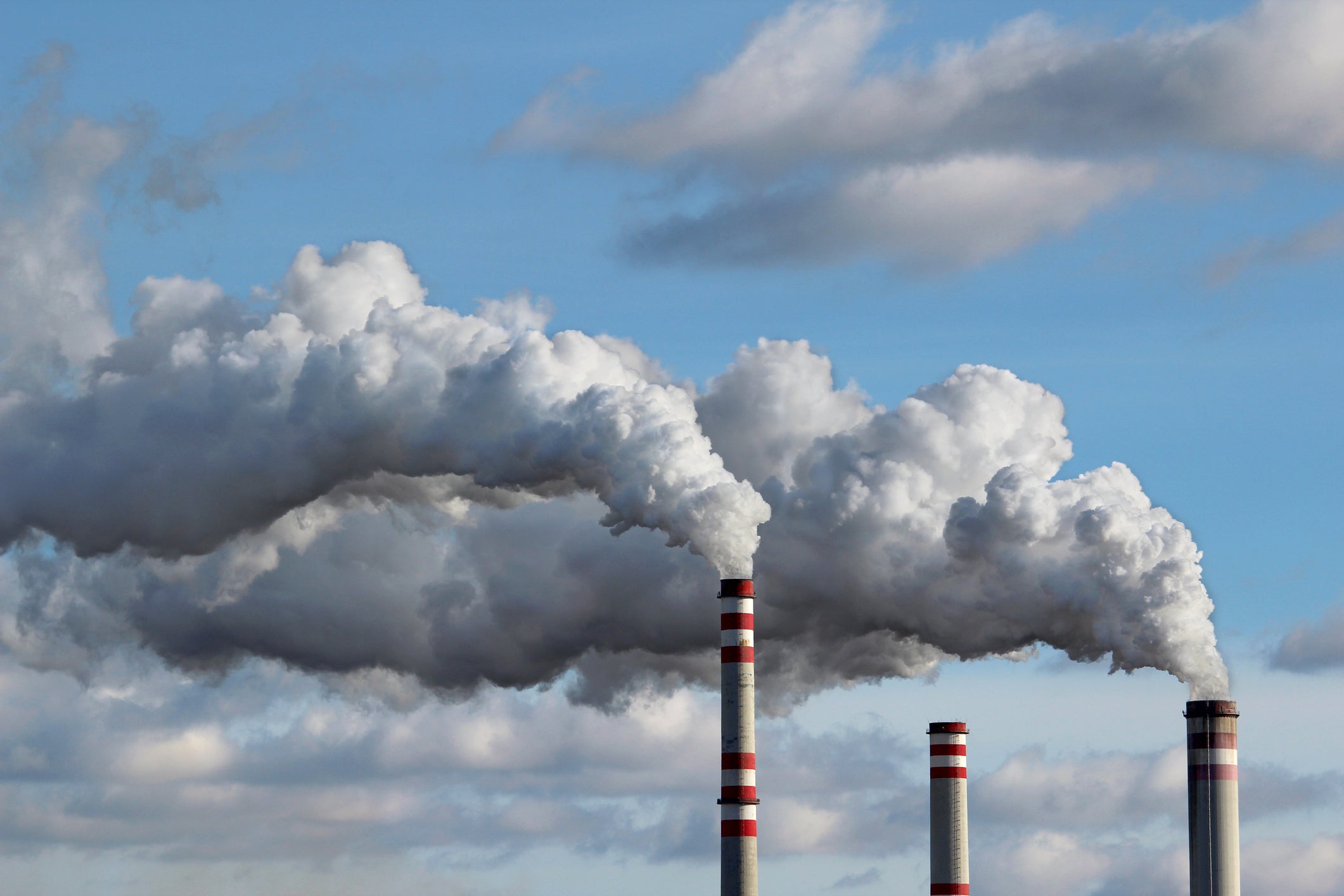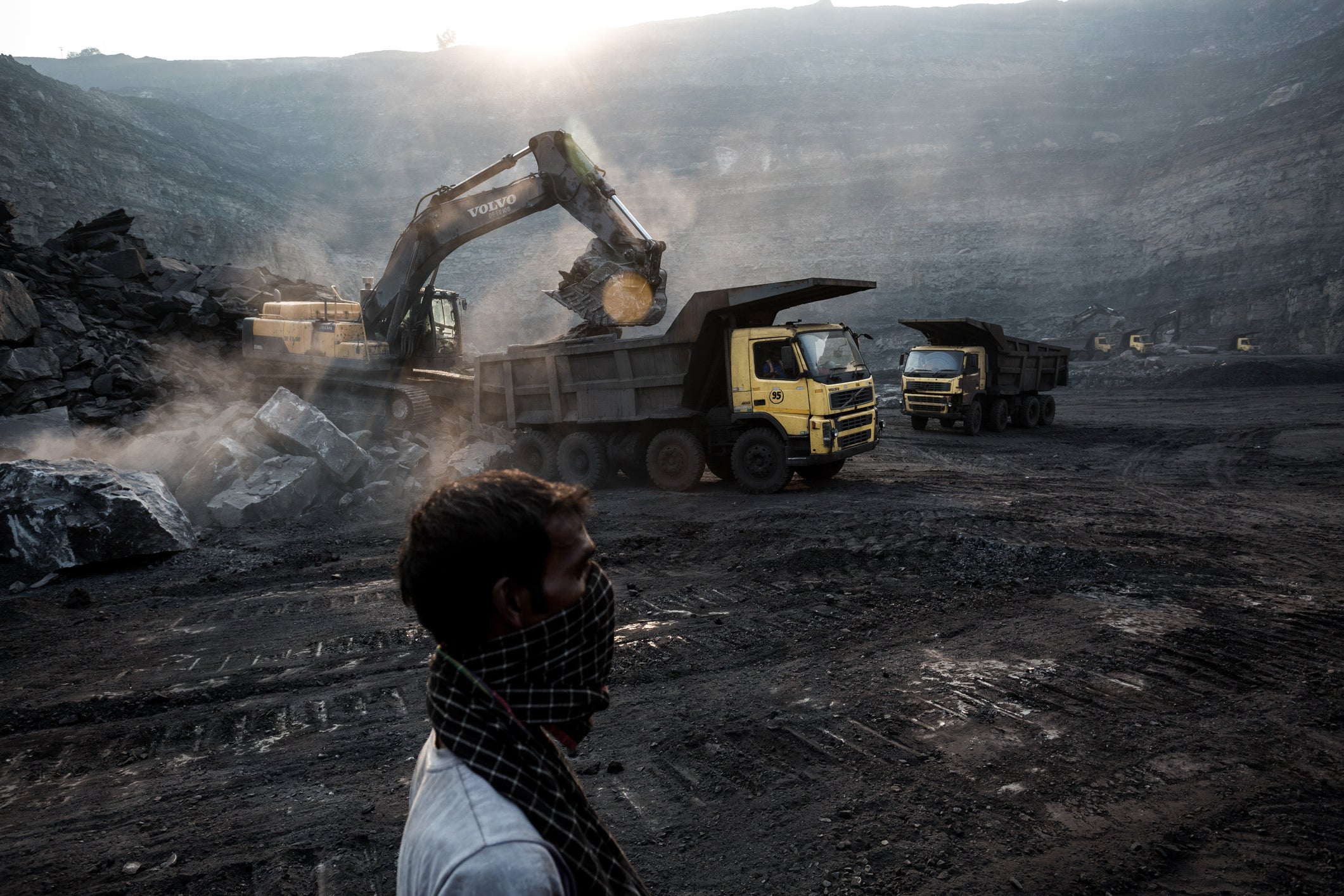Air pollution from fossil fuels ‘responsible for one in five deaths worldwide’
Number of deaths linked to fine particulate matter from fossil fuel burning could be twice as high as previously thought, research says

Your support helps us to tell the story
From reproductive rights to climate change to Big Tech, The Independent is on the ground when the story is developing. Whether it's investigating the financials of Elon Musk's pro-Trump PAC or producing our latest documentary, 'The A Word', which shines a light on the American women fighting for reproductive rights, we know how important it is to parse out the facts from the messaging.
At such a critical moment in US history, we need reporters on the ground. Your donation allows us to keep sending journalists to speak to both sides of the story.
The Independent is trusted by Americans across the entire political spectrum. And unlike many other quality news outlets, we choose not to lock Americans out of our reporting and analysis with paywalls. We believe quality journalism should be available to everyone, paid for by those who can afford it.
Your support makes all the difference.Air pollution from fossil fuels could account for nearly one in five deaths globally, a new study suggests.
The research found the pollution from fossil fuel burning accounted for around 10 million premature deaths in 2012 – with the largest number of lives cut short in China and India.
The number of deaths worldwide associated with fossil fuel burning fell to 8.7 million in 2018, the study estimates, as a result of significant improvements to air quality in China. This figure represents around 18 per cent of the total number of deaths recorded that year, the researchers say.
Published in the journal Environmental Research, the study focuses specifically on deaths attributable to fine particulate matter (PM2.5) pollution.
“PM2.5 can penetrate deep into our lungs,” Karn Vohra, study lead author and a PhD student in environmental health sciences at University of Birmingham, told The Independent.
Evidence suggests exposure to PM2.5 is linked to a range of serious health problems, including respiratory illnesses, strokes and heart attacks.
“We estimate a global mortality burden of 8.7 million premature deaths in 2018 from fossil fuel PM2.5 pollution,” Mr Vohra said.
“The highest mortality burdens are estimated over regions with substantial fossil fuel combustion, notably India, China and parts of eastern US, Europe and southeast Asia.”
For the research, the scientists used a high-resolution mathematical model to study global concentrations of PM2.5 specifically from fossil fuel burning.
They also used a new health risk assessment model to estimate the total number of premature deaths that can be attributed to PM2.5 pollution from fossil fuel burning.
The finding that PM2.5 pollution from fossil fuels could account for 8.7 million – or one in five – premature deaths a year is more than double that of previous estimates. This estimate is for 2018, before the start of the Covid pandemic.
The most recent assessment on the global causes of mortality published by The Lancet found that all “outdoor particulate matter” – which includes dust and smoke from fires as well as fossil fuel burning – accounted for 4.2 million deaths globally each year.
In the UK, the number of deaths attributable to air pollution from fossil fuels could also be higher than thought, according to the results.
The new research estimates that, in 2012, around 99,000 people died prematurely as a result of air pollution from fossil fuels in the UK. Previous estimates had suggested that between 28,000 and 36,000 people will die each year as a result of exposure to all types of air pollution in the UK.
Mr Vohra said the rise in the global number of deaths attributable to fossil fuel pollution was linked to the high-resolution models used in the research.
Thomas Smith, an assistant professor in environmental geography at the London School of Economics. who was not involved in the study, said the modelling techniques used by the researchers marked “an important step forward”.
“A key advance is related to the model,” he told The Independent. “This has a fine spatial resolution which allows it to better represent ‘pollution hot spots’, such as cities. Previous studies using lower-resolution models might have ‘smoothed out’ these pollution hot spots.”
However, there is still uncertainty over the global number of deaths attributable to air pollution from fossil fuels, Mr Vohra added.

The study provides a central estimate of 8.7 million premature deaths a year, but notes a possible range of between -1.8 million and 14 million.
“The uncertainty is due to the relatively limited number of epidemiological studies of the very high PM2.5 concentrations typical of China,” said Mr Vohra.
“The wide range of uncertainty at these higher PM2.5 concentrations should be an incentive for additional studies to improve our estimates at these high concentrations.”
Overall, the findings add to “the urgency to shift to cleaner sources of energy”, he added.
In addition to causing air pollution, fossil fuels also damage human health by driving the climate crisis. A recent report found that the health of millions of people is already being affected by the impacts of the climate crisis, which include worsening extreme weather events and shifts to disease risk.
“The lethal health impacts of climate change and air pollution – two of the most pressing global health issues of our time – have to be arrested,” said Ronald Law, an affiliate professor at the University of Washington and chief of health emergency preparedness in the Philippines.
“Bold actions to shift to clean energy sources is a must if we are to better protect the health of our planet, society and people, now and in the future.”


Join our commenting forum
Join thought-provoking conversations, follow other Independent readers and see their replies
Comments